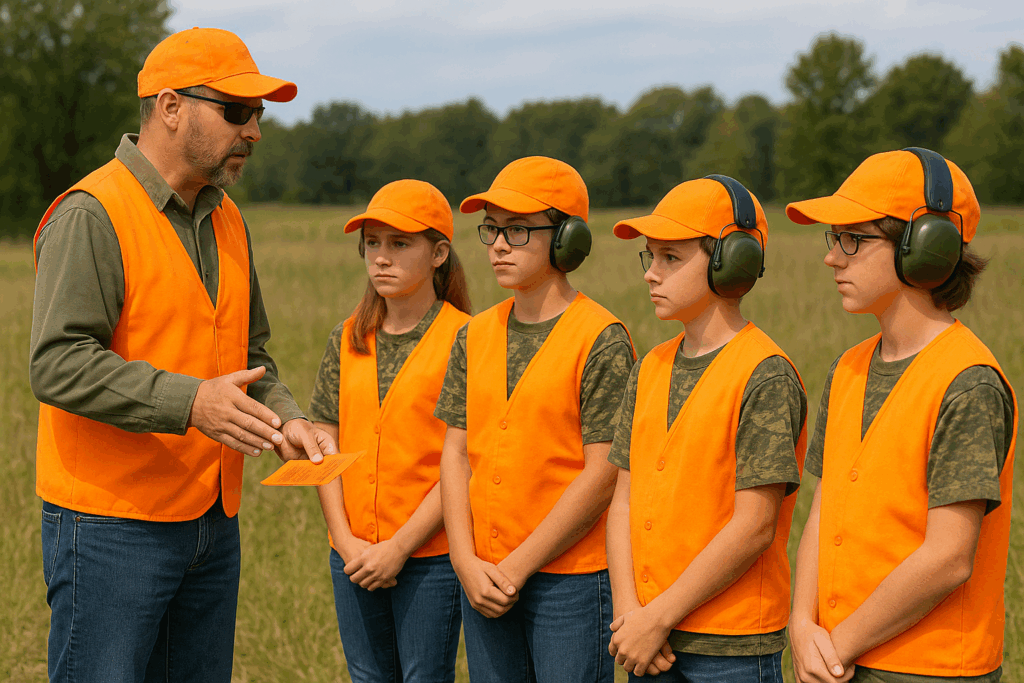Take an Official State-Approved Hunter Safety Course

Hunter education is a crucial step for anyone interested in hunting safely and responsibly in Indiana. Understanding the age requirements for enrolling in a hunter education course helps ensure that young hunters are prepared and compliant with state regulations. Indiana has specific guidelines regarding the minimum age for taking hunter education, as well as rules about hunting before completing the course. This article will explore these details thoroughly to help prospective young hunters and their families navigate the process with confidence.
The minimum age to take a hunter education course depends on the type of course being taken. The online course has a minimum age of 12, but Indiana does not impose a strict minimum age requirement to enroll in an in-person hunter education course. This means that children of various ages can begin learning about hunting safety and ethics at an early stage. However, while there is no official minimum age, the course content is designed to be suitable for youth who can comprehend and apply the safety principles taught.
Parents and guardians are encouraged to assess their child’s readiness before enrolling them in hunter education. The Indiana Department of Natural Resources (DNR) recommends that younger children participate with adult supervision to ensure they understand the material and can safely engage in hunting activities later on.
In some cases, parental permission is required for minors to participate in hunter education courses, especially for in-person sessions or field days. This ensures that parents are aware of their child’s involvement and can provide necessary support throughout the learning process.
While Indiana does not set a minimum age, parental involvement is often necessary. Parents or guardians typically need to register their children for courses and may need to accompany them during practical components of the training. This involvement helps reinforce safety lessons and ensures compliance with state regulations.
In Indiana, hunter education is generally required for anyone born after December 31, 1986, who wishes to purchase a hunting license. This means that if you were born on or before this date, you are exempt from the hunter education requirement. The rule applies to both Indiana residents and non-residents who want to hunt within the state.
The purpose of this requirement is to ensure that all hunters have a basic understanding of hunting safety and ethics before heading into the field. The Indiana Department of Natural Resources (DNR) oversees these regulations and provides resources for hunter education.
If you need to find a state-approved hunter safety course, you can visit the IN DNR’s hunter education website. This site offers a list of approved courses that meet Indiana’s standards, including online and in-person options.
Indiana does offer an online hunter education course option, which is convenient for youth (12 and older) and adults alike. The online course covers all the required topics, including firearm safety, wildlife identification, and hunting laws. It allows students to learn at their own pace from home.
Enrolling in a youth hunter education course in Indiana is straightforward. The first step is to visit the Indiana Department of Natural Resources website or trusted course providers like Recademics to find available courses.
Students or their parents can register online for either in-person or online hunter education courses. For online courses, registration includes signing up for the required field day session.
It is important to review course schedules and locations carefully to select the most convenient option. Some courses may have limited spots, so early registration is recommended.
Parents should ensure they have all necessary documentation, such as proof of age and parental consent forms if required, before enrolling their child.
The Indiana DNR website provides official information and links to approved hunter education courses. Families can also contact local wildlife offices or conservation clubs for additional guidance and support in enrolling youth hunters.
For youth participating in hunter education courses in Indiana, a parent or guardian’s presence is often required, especially during in-person components like field days and testing sessions. This requirement ensures that minors have adult supervision and support throughout the training process.
Parents or guardians may need to register their child for the course and sign consent forms. During field days, they might also be asked to stay on-site to assist with safety and logistics.
Parents play a vital role in reinforcing hunter safety principles and encouraging responsible behavior. Their presence during training sessions helps create a safe and supportive learning environment for young hunters.
Once a student successfully completes hunter education in Indiana, the certificate they receive is valid for life. There is no need to renew or retake the course, which simplifies the process for hunters who may take breaks between hunting seasons.
Additionally, Indiana’s hunter education certificate is recognized by many other states through reciprocal agreements. This means that hunters who complete the course in Indiana can often hunt legally in other states without additional hunter education requirements.
This reciprocity encourages safe hunting practices nationwide and provides flexibility for hunters who travel across state lines.
The lifetime validity of the certificate underscores the comprehensive nature of the hunter education course. Hunters can rely on their certification indefinitely, confident that it meets the standards of Indiana and many other states.
This is a FREE Boating course.